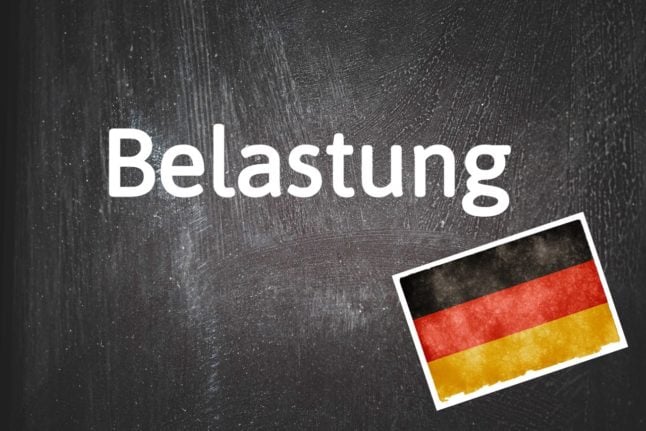Why do I need to know Belastung?
Because this versatile little word can be found everywhere, from articles about contaminated waterways to discussions about teen mental health.
What does it mean?
Die Belastung (be.last.ung) can mean numerous things depending on its context, but generally it’s used to refer to a “load” or a “burden” of some kind. This can, of course, mean a physical load such as goods on a cargo train, but more often it’s a metaphorical one.
That’s why you may hear politicians in Germany talking about a “finanzielle Belastung” (financial burden) on citizens through inflation, or have a friend write to you about how their hectic new job is “eine Belastung” (a strain).
Occasionally, Belastung can be a liability or debt, and other times it could be a heavy workload.
If you hear it in an ecological context, it’s sadly most likely to be referring to pollution or exposure to a toxic substance.
READ ALSO: German word of the day: Beharren
Where does it come from?
The word Belastung appears to come from the noun ‘Last’ in Old High German, which was used to describe something that weighed a person down – in other words, a load. In Middle High German, ‘Last’ could also be used as a measurement to mean an abundance or large quantity of something – again, similar to the English ‘load’.
‘Last’ has the same meaning to this day and can be found tucked away in several German words with similar connotations. For example, as well as burdening someone with a Belastung, you can also free them of their heavy load with an Entlastung. Incidentally, the latter is the word usually used to describe financial relief measures taken by the government.
Use it like this:
Ich will an der Universität studieren, aber momentan sind die finanzielle Belastungen zu groß.
I want to study at university, but at the moment the financial burdens are too great.
Mein rücksichtsloser Freund ist eine Belastung.
My reckless friend is liability.



 Please whitelist us to continue reading.
Please whitelist us to continue reading.
Member comments